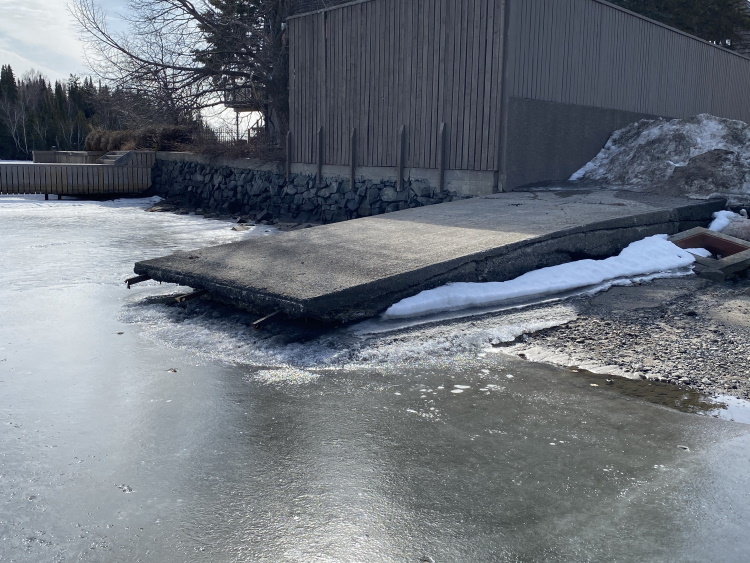This year's very snowy winter may be the answer to solving the drought conditions we have faced over the past few years.
The Lake of the Woods Control Board recently held their Spring Regulation Strategy meeting to discuss their approach to making sure the snowmelt goes smoothly.
Matt DeWolfe, the Executive Engineer for the Control Board, explained what a Spring Control Strategy is, “The Board met with representatives of different interest groups and resource agencies to take a look at the conditions across the full Winnipeg River watershed, in order to come up with a strategy for regulating the flows out of Lake of the Woods and Lac Seul.”
“There are a number of factors that will contribute to how the spring is going to play out and snow is certainly an important one, but it is not the only one. The other key factor is the fact that we are coming off a really prolonged period of drought in the watershed,” said DeWolfe.
According to DeWolfe, “Canadian and American agencies responsible for classifying drought still see most of the watershed is either being abnormally dry or in a moderate or severe drought condition, and what that means is that the ground has a capacity for absorbing some of the runoff.”
The Control Board is preparing for many different outcomes this spring, DeWolfe says that even with all the snow, it is not guaranteed that we will see drought conditions clear up.
“There's still a chance [for low water levels] if the snow goes relatively quickly and we don't have a very wet spring. But there is also the risk on the other end, if we end up having a very wet spring, things can quickly turn to the high end of water levels, the levels for both the lakes and rivers,” said DeWolfe.
“So, the Board’s Spring Strategy is to basically try and balance those risks while positioning the lakes to be able to absorb some of that snowpack as it comes off in April and into May, and just makes sure there's enough storage room so that we don't get into those really high conditions quickly,” continued DeWolfe.
When asked about the position heading into spring compared to last spring, DeWolfe said “Well, last year, in particular, was a very dry spring. We did not get a lot of precipitation and we were already in a drought condition coming out of 2020. It’s a different setup this year in terms of the fact that we did get a bit of rain last fall, so that is helping to improve the drought situation.”
He added, “There is still underlying drought, but it's not as severe as we have had. There's definitely more snow on the ground this year than there was last year, so we're expecting that the drought conditions will be resolved.”
Dewolfe concluded by saying the Control Board expects a moderate to moderately high runoff period this spring.
